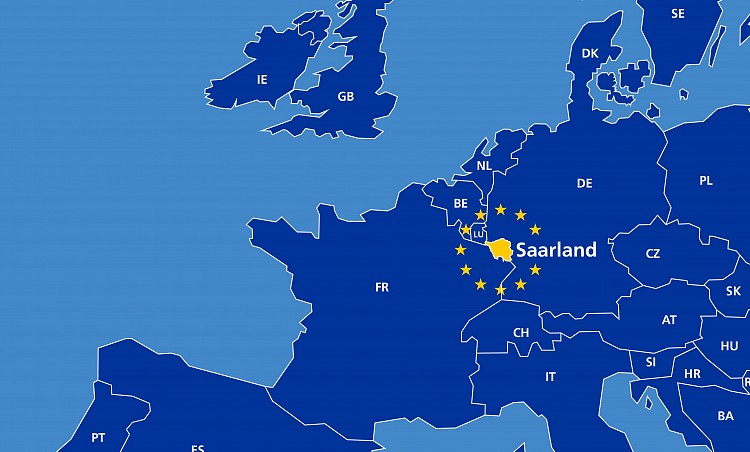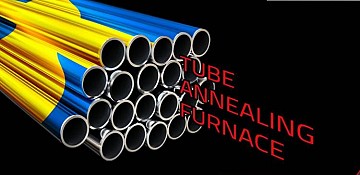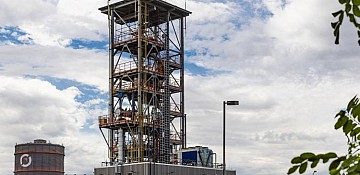
The way that companies undertake production and work together with suppliers is rapidly changing across all sectors. The digitalisation of all processes and the integration of learning algorithms promise to transform the vision of Industry 4.0 into a reality.
However, successful automation is not built solely on IT. Experience and expertise from production facilities must also be incorporated into innovative developments. Traditional industrial locations that have built up IT skills from an early stage offer significant benefits for both established and new companies. Germany’s Saarland is such a location. This traditional industrial hub has been working to develop its IT research landscape since the 1980s and 1990s, and has become home to the German Research Center for Artificial intelligence (DFKI), two Max Planck Institutes (for Informatics and for Software Systems), and most recently the CISPA Helmholtz Center for Information Security.
So it is no surprise that Saarland now boasts both highly automated, efficient industry and an excellent research landscape that draw inspiration from each other.
To ensure that the area offers the perfect conditions for companies and research institutions, the gwSaar Saarland Economic Promotion Corporation has developed industrial sites and commercial properties to meet all needs. gwSaar’s services also cover supporting companies throughout the entire relocation process, including networking with local stakeholders. At gwSaar's suggestion, we interviewed four of these stakeholders from research and industry on the topic of automation and the state.
Karlsberg
Given the high quality and safety requirements of food production, it is a perfect place to use modern sensor technology and production process automation. The same goes for connections with suppliers and logistics providers. In our interview, we talked to Christian Weber – CEO of Karlsberg Brauerei KG Weber – about the importance of automation in the brewery’s factories and what he values about the human factor.

As well as undergoing automated quality controls, beer in the Karlsberg Brewery must also stand up to to the boss’s critical eye.
Question:
Mr Weber, does increasing automation make your life easier?
Christian Weber, Karlsberg Brewery:
Automation allows us to achieve better quality in our processes. It serves as a helping hand that enables us to improve even further. It lightens our employees’ load and thus allows them to put their skills to more targeted use.
Question:
Karlsberg is one of the sector's most innovative companies. Does greater automation allow more room for creativity?
Christian Weber, Karlsberg Brewery:
Automation helps to streamline and improve the quality of processes. For example, it allows you to talk to customers about new topics rather than about troubleshooting. One key element is the time savings it creates, thus providing valuable time and freedom that can be used to move projects forward.
Question:
Despite all this automation, Karlsberg Brewery seems to set great store by its employees. They are authentically featured in advertisements and even shown on some of your products. How would you rate the availability of expert labour and the loyalty of Saarland staff?
Christian Weber, Karlsberg Brewery:
People are our core, our starting point. Our employees are linked by a culture of camaraderie and shared set of values. We work hard to ensure that anyone who wishes to can actively and responsibly contribute. In the context of continually changing requirements (particularly as regards technological innovations), it is vital that we also continue to further develop as an employer and ensure that we stand in an attractive position compared with other interesting companies. There has been visible change, for example in the training we provide: we recently decided that from the 2021 training year onwards, we will be training automation technology electronics technicians rather than operating technology electronics technicians.
Question:
Key aspects of successful automation, such as artificial intelligence, cybersecurity and sensor technology, are represented by renowned research institutes in Saarland. Do you benefit from this as an SME?
Christian Weber, Karlsberg Brewery:
Yes. We have established contacts with the aforementioned institutes and have already been collaborating, for example in the field of cybersecurity. Similarly, in the field of AI, we have been discussing the topic of predictive maintenance and predictive quality with a Saarland company from the university environment.
ZeMA
The Centre for Mechatronics and Automation Technology (ZeMA) does not simply conduct research from an ivory tower. The Centre is an industry development partner and ensures that research and development findings from Saarland’s universities and institutes are quickly and efficiently fed into the processes used by local companies. We talked to Prof. Dr. Ing. Rainer Müller, CSO of ZeMA, about collaborations between research and the private sector, industrial moves to increase the level of automation, and the impact of the coronavirus pandemic on processes and sites.
Question:
Prof. Müller, you have been running ZeMA in Saarland for more than eight years. Germany’s Saarland is a strong industrial location with an excellent research landscape in the fields of automation, AI and cybersecurity. How do local companies benefit from this research expertise?

Prof. Rainer Müller has given ZeMA a broad base with the Sensors and Actuators, Manufacturing Processes, and Assembly Processes research divisions, in order to promote development with and for industry.
Prof. Dr. Ing. Rainer Müller, ZeMA:
Saarland is indeed a strong industrial location, and also has some excellent institutes and professorships in the areas you have listed. This means that both sides can directly benefit, although this could be developed even further. In general, existing local companies benefit from the Saarland’s research output and expertise on the one hand via contract research and on the other through various regional, national and European research programmes to which institutes, professorships and companies can apply with joint research ideas. Another increasingly relevant point – as national and European programmes show – is the transfer of knowledge directly to companies, e.g. via awareness raising, events, workshops, and training sessions in particular relating to digital transformation, the use of artificial intelligence, and cybersecurity. Another aspect that it is important not to overlook is spin-offs and start-ups, which often grow out of cutting-edge research insights and offer corresponding added value to the state.
Question:
What questions do companies ask the institute?
Prof. Dr. Ing. Rainer Müller, ZeMA:
This has to be viewed from numerous angles. You know that we at ZeMA have a very broad base with our Sensors and Actuators, Manufacturing Processes, and Assembly Processes research divisions. As a result, some companies come to us with questions about the research and development of new products (e.g. using intelligent materials) or new production technologies and processes (e.g. in the automotive industry or using robotics technology). We often support such companies right through to developing initial prototypes and function testing. Other companies come to us so that we can analyse existing production processes and work with the company to optimise them. We provide these companies with support through analyses, concepts and feasibility studies. The same goes for Industry 4.0 and digitalisation. As part of our projects, such as the Saarbrücken SMEs 4.0 Centre of Excellence, we work with our partners – the August-Wilhelm Scheer Institute for Digital Products and Processes and saarland.innovation&standort e.V. – to support digital transformation. We also work with university professorships and the German Research Center for Artificial Intelligence in this area.

ZeMA demonstrator at work
Question:
The level of automation in German companies is generally considered high. Where do you see the biggest potential for further automation in companies, and what benefits does this offer?
Prof. Dr. Ing. Rainer Müller, ZeMA:
Many companies have already automated the processes that need automating as part of their optimisation activities. However, this does not mean that there is no potential for further optimisation in this area. Automation often offers great benefits, especially for repetitive processes with very high volumes and low variance. The benefits of automation can be reduced costs, increased volumes, guaranteed quality and other factors. However, although we are an automation technology centre, we do not take the view that everything should be automated. Automation definitely has its advantages, but it is not the only solution to the challenges that companies are currently facing, with customised products and multivariance as key concepts. Instead, we believe that automation (especially in the sense of digitalisation) and hybrid, intelligently supported manual processes are the future.
Question:
Cost-effectively producing batch sizes of one or, producing product variants personalised by the customer in a mass production environment is one of the future visions of automation. Do you think that it will be possible to make production processes this flexible in the future? And what are the conditions for implementing this?
Prof. Dr. Ing. Rainer Müller, ZeMA:
This goes back to the point I raised earlier. Of course, automation solutions will continue to become more versatile, more flexible and also more intelligent in the future. However, our work and research has shown that simply automating a process cannot be the end in itself. Instead, automation needs to be tackled in the context of the real and digital/virtual world. It is more a matter of supporting people in factories or production with intelligent systems, such as expert systems, remote support, condition monitoring or assistance systems in the workplace. Why? Because multi-variant ‘mass production’ is making the environment increasingly complex, and there is often further potential for optimisation in improving existing processes or understanding cause and effect. Condition monitoring, predictive maintenance and AI-based quality controls are some examples that show significant potential and require intelligent automation in the sense of digitalisation, as well as the use of artificial intelligence. Production and process data, and in particular its intelligent processing and context-sensitive provision, are therefore increasingly important for production transformations and ultimately also for the leading role played by our business location – whether as an exporter of top-quality products or the next generation of innovative investment items.
Question:
Supply bottlenecks during the coronavirus pandemic have led to a change in thinking in industry. Many companies want to establish more regional supply chains. Can automation help create efficient solutions here?
Prof. Dr. Ing. Rainer Müller, ZeMA:
It is important to use digitalisation to create automated and standardised processes within the supply chain and reliably share data or information. One goal must be transparency regarding production and supply status and the quality of components and assemblies within the supply chain. Automation can then of course support individual processes such as labelling and identification – in other words, general tracing or product tracking.
Qbing
Logistics processes play a central role in the automation of production facilities. They are the gateway to suppliers and ensure stable production progress, tidy storage and efficient, accurate transportation of goods. Linking this up with goods management systems is now indispensable. Saarland start-up Qbing has developed a plug-and-play solution that allows companies to integrate this into an existing operation. Co-founder and CEO Christian Schwindling explains why this is an advantage, where additional automation steps are called for in logistics, and why the company opted to be based in Saarland.

Christian Schwindling (centre) and his Qbing team develop plug-and-play solutions for logistics
Question:
Mr Schwindling, your system is used to integrate auto-ID solutions. What exactly does it do, and which companies could it benefit?
Christian Schwindling, Qbing:
Our QIS.TE (pronounced KIST-UH) software enables auto-ID and RFID hardware to be integrated into corporate networks using plug and play. This takes just a handful of steps and some simple settings in the associated configuration tool. No detailed technical knowledge or programming work is needed. The investment required is also significantly lower than for conventional connections. Our aim is to facilitate auto-ID or RFID access for as many users as possible – out-of-the-box RFID, so to speak.




Qbing system modules
Question:
What areas do you see as offering further potential for improvement – particularly in logistics? And what challenges do companies need to overcome in order to tap this potential?
Christian Schwindling, Qbing:
In my view, all manual steps such as scanning and inputting goods and materials or posting certain process steps have great potential to be automated. This would do more than just save time – digitalising data also boosts transparency and offers other benefits.
The challenge with this is to select appropriate hardware, i.e. sensor and actuator technology, for each application and to choose and integrate data into appropriate systems.
Question:
Start-ups are highly sought-after and can cherry-pick their location. You deliberately avoided the large metropolises and went for Saarland. What attracted you to Saarland as a business location?
Christian Schwindling, Qbing:
Qbing arose from a research group at htw saar (University of Applied Sciences). This link to Saarland’s research landscape is something that still benefits us today.
Saarland offers an excellent network for entrepreneurs, with rapid decision-making processes and a point of contact for every concern. I have always felt in good hands in Saarland, both during the initial phase and in our current growth phase, and I also believe that QIS GmbH continues to be well served here.
consistec
‘Automation without cybersecurity is a risk’, in the expert view of Thomas Sinnwell, CEO Research & Development of consistec. Mr Sinnwell explains what the company does to secure its customers’ automation processes and why it has chosen to do this from Saarland.

Thomas Sinnwell uses monitoring and analyses to uncover invisible attackers
Question:
Mr Sinnwell, how does the company consistec assist companies with the automation process?
Thomas Sinnwell, consistec:
Our work relates to OT (operational technology) security. Control systems can be found anywhere where there is automation of physical equipment and processes. They can be hacked and sabotaged. We use monitoring and analysis to ensure that our customers are aware if something like this happens, in both IT and OT.
Question:
Does increasing automation also increase the risk of attacks?
Thomas Sinnwell, consistec:
In principle, yes. Automation is now being applied to systems that are no longer proprietary. However, proprietary protocols and compartmentalised networks previously provided good levels of protection. All major manufacturers now use the IP protocol, and internet connections provide new vectors of attack. If I identify weaknesses in just one major control technology provider, this enables me to attack a multitude of companies.
Question:
Does this mean that IoT poses a further problem?
Thomas Sinnwell, consistec:
Exactly. If you look at the home automation sector, there are countless systems that I can attack and misuse. Security is therefore becoming increasingly important.
Question:
What are the dangers of ignoring security aspects?
Thomas Sinnwell, consistec:
Automation without cybersecurity is a risk. There has been a huge increase in attacks in industrial environments. Facilities are being crippled and companies blackmailed, and this trend is rising. Cyberattacks have become a criminal business opportunity. It is not even that difficult any more – there are numerous guides and tutorials, and for not very much money I can buy lots of malware, or even personalised malware, that I can use to attack a wide range of companies.
Question:
How do you integrate security into networked production facilities?
Thomas Sinnwell, consistec:
For new facilities, security systems should be planned right from the outset.
For existing systems, the challenges are more complex. OT systems are not generally patched, meaning that they often run for 5-20 years using the same software version. In this instance, there is only one way of protecting them: they have to be regrouped and the individual segments secured using an industrial firewall or edge boxes. With the edge box concept, I can intercept data and link it up with monitoring. This is how we operate with our customers. We introduce edge boxes to enable monitoring of old existing installations and allow us to connect to our analysis software. It is important that this is reactionless, i.e. that the analysis system itself cannot import any malware. This also complies with the Federal Office for Information Security’s specifications for segmentation. I ensure that if there is an attack, this does not cripple the entire factory.

consistec uncovers OT/IT security flaws and system vulnerabilities in real time
Question:
You started your company in Saarland. Does this location offer benefits for companies?
Thomas Sinnwell, consistec:
One tangible benefit is the fact that Saarland is an exceptionally good IT location, including in the field of cybersecurity. The CISPA Helmholtz Center for Information Security, which is based here, is one of the top three research institutes in the world. This is a fantastic starting point. Similarly, we maintain close contact with the German Research Center for Artificial intelligence (DFKI), which is also located in Saarland. This collaboration is a huge plus point, as machine learning is an important topic for us when it comes to identifying anomalies in networks. The top-quality education offered by Saarland University and the research institutes provides us with exceptionally well-trained staff. In addition, Saarland still has numerous manufacturing companies. Working with these companies is an invaluable asset for further developing our systems to meet the needs of our target market.
Author:
Anja Petschauer
Marketing Director
gwSaar Saarland Economic Promotion Corporation
a.petschauer@invest-in-saarland.com
Your Germany’s Saarland contact in Turkey:
(Ms) Derya Araç
Temsilci gwSaar Türkiye / Representative gwSaar Turkey
gwSaar Saarland Eyaleti Resmi Ekonomik Kalkınma Şirketi
M: +90 / 531 958 83 88
E: d.arac@invest-in-saarland.com
World Media Group (WMG) Haber Servisi
 Industry News (English)
Industry News (English)
 Industry News (English)
Industry News (English)
 Industry News (English)
Industry News (English)